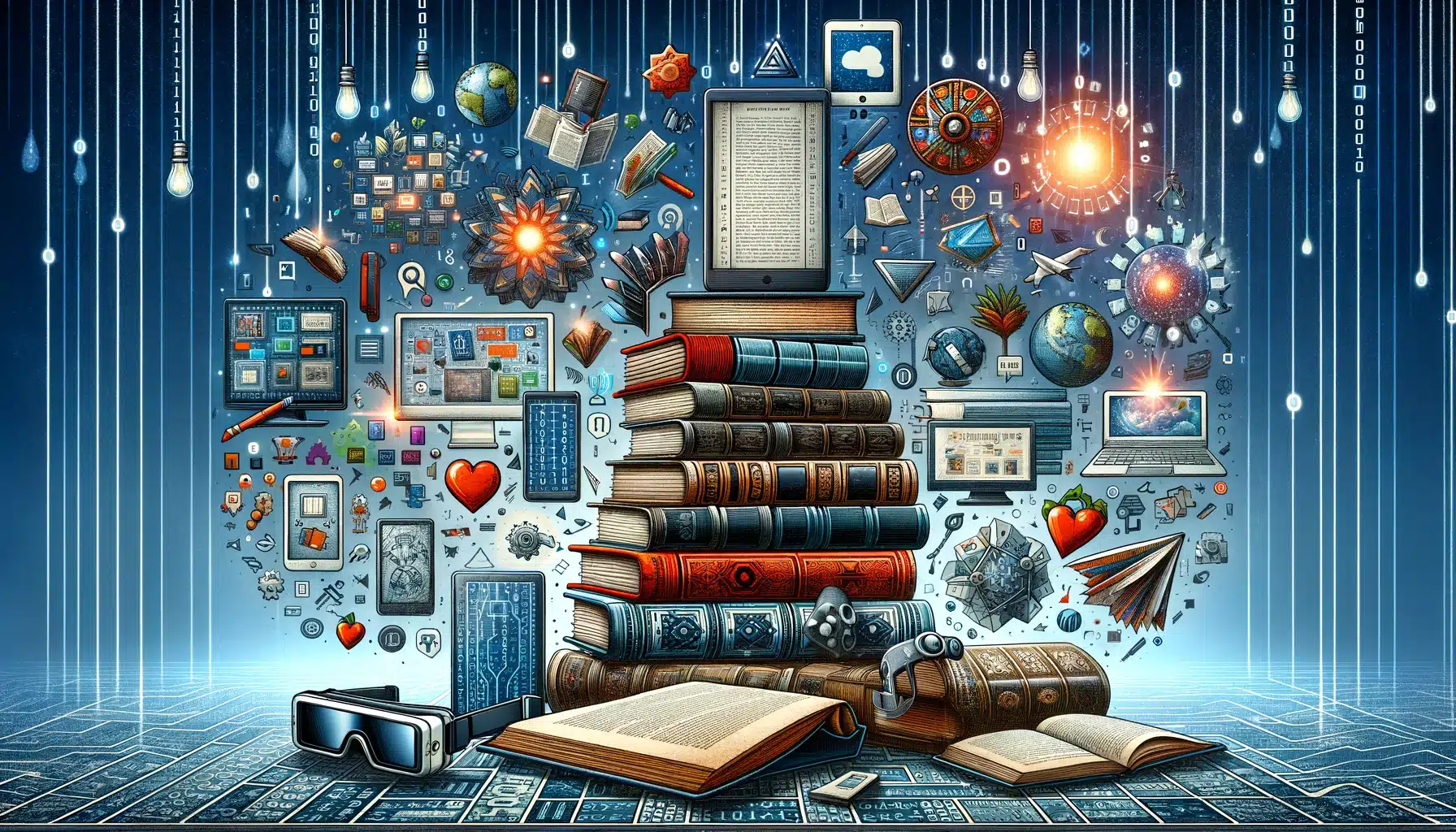

In the last two decades, the world of reading and publishing has undergone a seismic shift, primarily due to the rise of e-books. This digital revolution has not only changed the way we consume literature but also how authors and publishers approach the creation and distribution of content. With the advent of cutting-edge technology, particularly in the realms of artificial intelligence (AI) and machine learning, e-books are evolving far beyond static digital pages, venturing into a new era of interactivity and immersive experiences. This evolution is redefining the future of reading, offering novel ways for readers to engage with content and for creators to explore the bounds of storytelling.
The Dawn of Digital Reading
The journey began with the digitization of text, transforming paper to pixels and making books accessible with the click of a button. This was the first, fundamental step towards democratizing access to literature, allowing for instant downloads, adjustable font sizes, and the ability to carry thousands of books in one’s pocket. However, the true potential of e-books lies not in their convenience but in their capacity to evolve.
Interactive E-books: Engaging the Reader
The integration of interactive elements into e-books marks a significant milestone in their evolution. Interactive e-books incorporate features such as hyperlinked footnotes, embedded multimedia (including audio and video clips), and interactive quizzes, providing a richer, more engaging reading experience. For educational content, this interactivity enhances learning by making it more engaging and interactive, catering to various learning styles.
Technological advancements, including AI and machine learning, are pushing the boundaries of what’s possible in interactive e-books. AI-driven personalization, for example, allows books to adapt to the reading level and preferences of the reader, offering tailored vocabulary support, personalized content recommendations, and adaptive storylines. Imagine a world where the story unfolds based on your choices or where characters adapt to your feedback, creating a unique narrative journey for each reader.
The Future of E-books: Immersive Experiences
Looking ahead, the future of e-books is poised to become even more immersive. Virtual and augmented reality technologies are beginning to make their way into the e-book domain, promising to transform reading into a fully immersive experience. Readers could find themselves walking through the streets of ancient Rome while reading a historical novel or standing on Mars while exploring a science fiction epic. These technologies not only promise to revolutionize the reading experience but also open up new creative avenues for authors and publishers.
The potential for AI to generate dynamic content in real-time could further enhance the immersive experience. Imagine e-books that evolve with current events, incorporate real-time data, or even create personalized story arcs based on reader input. The possibilities are limitless, blurring the lines between reader and content, narrative and experience.
Challenges and Considerations
However, this evolution is not without its challenges. The increasing complexity of e-books raises questions about accessibility, digital rights management, and the digital divide. Ensuring that these advanced e-books are accessible to all, regardless of technological proficiency or access, is crucial. Moreover, the role of authors and publishers is evolving, requiring new skills and considerations in content creation and distribution.
Conclusion
The evolution of e-books from static digital pages to interactive, immersive experiences represents a significant shift in the landscape of reading and publishing. As technology continues to evolve, so too will the ways in which we create, distribute, and consume literature. This evolution promises not only to enhance the reading experience but also to democratize access to information and knowledge. In this new era, the possibilities are as boundless as our imagination, paving the way for a future where books are not just read but experienced.
